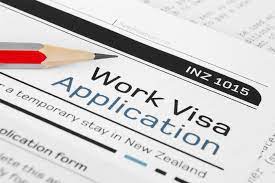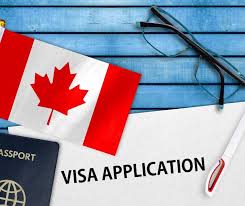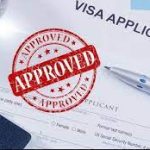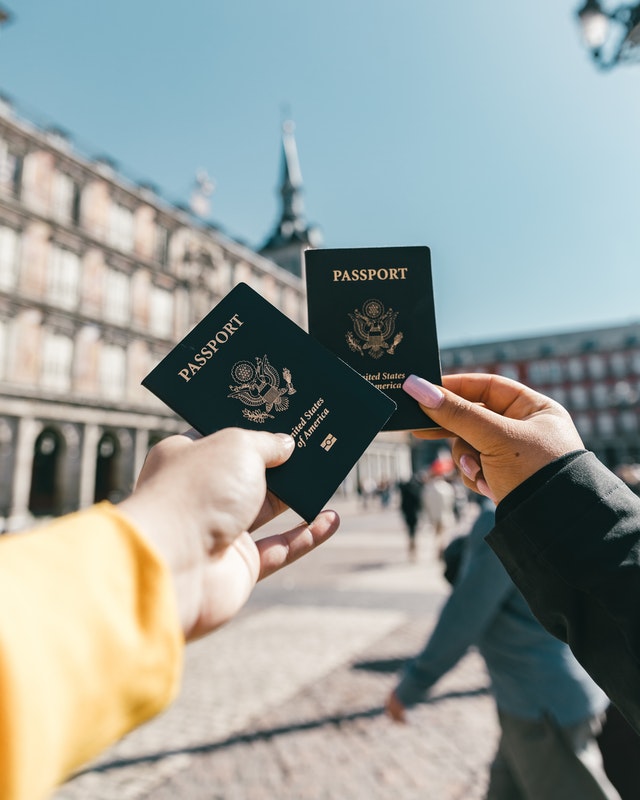Advertisements
A multitude of Nigerian citizens aspire to depart from their homeland in pursuit of more promising prospects overseas. Numerous nations, including Australia, Germany, the United Kingdom, Canada, and the United States, among others, offer superior employment opportunities, a higher standard of living, and more robust economies compared to Nigeria or any other developing country.
However, prior to embarking on a journey to work and live abroad, obtaining a valid work visa is an imperative prerequisite. Fortunately, this comprehensive guide aims to furnish you with invaluable insights, encompassing a step-by-step process for applying for a work visa in a generalized context.
What Is A Work Visa?
A work visa is a legal document or authorization issued by a foreign country’s government that allows a non-citizen to enter, reside, and work within that country for a specified period. Work visas are typically required when individuals from another country wish to work in a foreign nation, either temporarily or on a long-term basis.
Related: How To Apply For Canada Visitor Visa
Key features of a work visa include:
- Employment Authorization: Work visas grant the holder the legal right to work for a specific employer or within a specific occupation and industry in the host country.
- Limited Duration: Work visas are typically issued for a fixed period, which can vary greatly depending on the country and the specific type of work visa. It may range from a few months to several years.
- Specific Purpose: Work visas are often categorized based on the type of employment or purpose, such as temporary work visas for short-term employment or permanent work visas for long-term or permanent employment.
- Employer Sponsorship: In many cases, a job offer from an employer in the host country is required as part of the work visa application process. The employer may need to demonstrate that there are no qualified local candidates available for the job.
- Compliance with Regulations: Work visa holders are expected to abide by the laws and regulations of the host country, including immigration rules, labor laws, and tax requirements.
- Renewal and Extension: Some work visas may be renewable or extendable, allowing individuals to continue working in the host country after the initial visa period has expired.
- Dependents: Some work visas permit the visa holder’s immediate family members (spouse and children) to accompany them and, in some cases, work or study in the host country as well.
- Conditions: Work visas may come with certain conditions or restrictions, such as not being allowed to work for any employer other than the one specified in the visa application.
Work visas are essential for maintaining legal status and ensuring that foreign workers contribute to the host country’s economy while adhering to its laws and regulations. The specific requirements, eligibility criteria, and application procedures for work visas vary from one country to another, and they often depend on factors such as the type of job, the duration of employment, and the individual’s qualifications. It is important for individuals seeking work opportunities in a foreign country to thoroughly research and comply with the visa requirements of their intended destination.
Types Of Work Visas
Work visas encompass diverse categories, with suitability contingent on the duration of one’s intended employment abroad. These categories typically comprise:
Advertisements
Permanent Work Visas
This classification bestows on applicants the privilege of permanent residence in their chosen foreign country. After residing there for a stipulated period, individuals may apply for citizenship and transition to permanent residents.
Temporary Work Visas
Temporary work visas are tailored for those intending to work in another country for a limited duration. Depending on the chosen nation, it may be possible to extend the visa or return to Nigeria upon its expiration. Furthermore, some countries may offer avenues for transitioning from a temporary to a permanent work visa.
Eligibility Criteria
While specific work visa application processes hinge upon the destination country, several overarching eligibility criteria apply to anyone seeking a work visa across the board. These prerequisites encompass:
- Attainment of legal adulthood (typically 18 years or older).
- Securing a bona fide job offer from a legitimate employer.
- Ensuring the employing company or organization complies with all legal requirements.
- Notifying the authorities if changing employers during the application process, with subsequent employment ideally falling within the same industry.
- Sustaining continuous employment to maintain the work visa status.
General Work Visa Requirements
Although specific requirements for obtaining a work visa may diverge based on the host country, certain universal prerequisites persist. These include:
1. International Passport
Possessing a valid international passport, with an expiration date extending at least six months beyond the intended visa expiration date, is paramount. Copies of the passport’s data page, preferably in color and scanned, are typically required. Past passports, if applicable, should also be presented.
2. Visa Application Form
Most work visa applications necessitate the completion of a form, which can be submitted either offline or online. Honesty and legibility are pivotal when filling out the form, as providing false information can lead to visa denial.
3. Passport Photographs
The submission of at least two recent passport-sized photographs is often mandatory. These photos should not be older than six months and should adhere to the specific requirements of the destination country, typically measuring 35mm by 45mm. Facial clarity, a neutral expression, a plain background, and the absence of accessories and glasses are standard criteria. Head coverings are permissible only if dictated by religious beliefs.
4. National Identity Card
While not universally required, some countries may demand a scanned copy of the applicant’s national identity card for verification purposes. It is advisable to include this document in the application, even if it is not explicitly compulsory.
5. Medical Insurance
Certain countries mandate that applicants provide evidence of health insurance coverage to offset potential healthcare expenses while residing in a foreign nation. Adequate preparation of medical insurance documentation is thus essential.
6. Proof of Financial Stability
Demonstrating financial self-sufficiency is crucial, as governments seek assurance that applicants possess the means to support themselves and, if applicable, accompany family members throughout their stay. This can be established via bank statements spanning the past six months or a sponsorship letter in cases of financial backing.
7. Flight Reservation
Documentation verifying travel plans, such as travel itineraries or flight reservations detailing travel dates, ticket purchases, and the duration of the visit, is typically required.
8. Hotel Reservation
Evidence of secured accommodation within the host country is essential. While hotel reservations suffice, house receipts or an invitation letter from a resident family member or friend may also be acceptable.
9. Police Clearance Certificate
Many countries necessitate the submission of a police clearance certificate, attesting to a clean criminal record and law-abiding conduct.
10. Proof of Good Health
Providing a health report certifying one’s fitness is crucial. This medical evaluation, conducted by a certified healthcare professional, typically includes tests for diseases such as yellow fever and polio.
11. Visa Fee Receipt
Documentation confirming payment of the requisite visa fees is mandatory for application submission.
Related: How To Apply For Healthcare Jobs With Visa Sponsorship In UK
Work Visa Application Process
- Secure Employment: Prior to embarking on the work visa application process, it is imperative to secure a legitimate job in the target country. This is pivotal, as certain documents from the employer may be required during the application procedure. While securing employment abroad from Nigeria can be challenging, this guide will later provide insights on strategies to navigate this process effectively.
- Commence Application: After securing employment, the next step is to initiate the visa application. The application form may be completed either online or offline, contingent on the requirements of the destination country. Accuracy and honesty in form completion are paramount, as providing false information can result in visa denial.
- Fee Payment: Visa fees can typically be paid in person at the visa application center upon submission, especially if not already paid online. Fees may vary based on the destination country and may differ based on whether the visa is for a single or multiple entry. It’s important to be aware that additional charges may be requested by the visa processing center.
- Visit the Visa Application Center: An appointment with the visa application center must be scheduled before visiting. It is crucial to bring all required documents, including the passport, to the center. The staff will review the documents to ensure authenticity and biometric data will be collected for further processing. Selecting the nearest VFS center, a convenient date and a suitable time for the visit is vital.
- Application Tracking: Following document submission, applicants can monitor the status of their application online. This can typically be done by entering one’s last name and the reference number found on the receipt issued by the visa application center.
- Passport Collection: Upon a decision being reached regarding the application, the passport and accompanying documents will be dispatched to the applicant via a courier service. Applicants are usually responsible for covering the courier service costs. It is advisable to make photocopies of all documents submitted, as not all may be returned.
Work Visa Processing Time
The processing time for work visas is variable and influenced by various factors. It can range from weeks to months, contingent on the destination country and its specific processing procedures.
Work Visa Denials
In the unfortunate event of a work visa application being rejected, several factors may contribute to the refusal, including:
- Provision of incorrect or inaccurate details.
- A criminal record.
- Submission of false or invalid documents.
- Lack of a legitimate job offer.
- Submission of an invalid or expired passport.
- An incomplete application.
- Insufficient funds or absence of proof of financial stability.
Tips For Securing A Job Abroad From Your Country
- Fulfill Requirements: Ensure you meet all job requirements, including those specific to the position and country. Research the specific qualifications needed for your desired role.
- Craft an Impressive CV: Your CV serves as your initial impression to potential employers. Tailor it to the specific job and country requirements, highlighting relevant work experiences.
- Utilize Online Job Boards: Explore job websites such as Glassdoor and Indeed to search for overseas job opportunities. These platforms aggregate job listings from companies worldwide, offering a convenient means of finding suitable positions.
Conclusion
For many candidates in a developing country, the prospect of working abroad holds immense allure due to the myriad career opportunities available. If you have been seeking guidance on obtaining a work visa from your country of origin, I hope that you find our comprehensive guide helpful in navigating the process successfully. By adhering to these guidelines, you can not only secure a work visa but also potentially secure a desirable job opportunity abroad without encountering significant obstacles.
If you find value, do well to share this post with your friends on social media.






